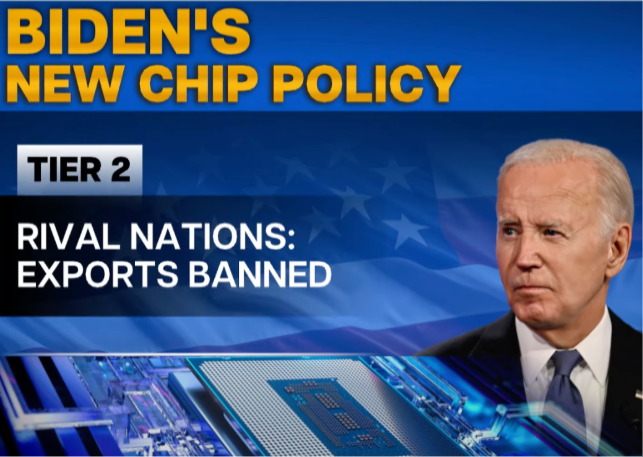News
Nvidia Slams Biden Administration for AI Diffusion Policy Regulating Chip Exports

The Biden administration recently announced sweeping new restrictions on the global export of advanced AI chips, a move aimed at curbing China’s progress in artificial intelligence and preserving U.S. technological leadership. These measures, part of the broader AI diffusion policy, impose strict limits on the sales of high-end GPUs and limit access to advanced AI models. Commerce Secretary Gina Raimondo emphasized the importance of maintaining America’s edge in AI, stating, “The U.S. leads the world in AI, and it’s critical to keep it that way.” However, leading chipmaker Nvidia slammed the decision and called it “misguided” and “undermining.”
The Rationale Behind Biden’s AI Diffusion Policy
The primary goal of the new export controls is to prevent adversarial nations from leveraging U.S. technology for military and economic advancements. Officials pointed out that earlier sanctions failed to stop China from acquiring U.S. chips indirectly through third countries. This loophole prompted the need for stricter measures. According to Gregory Allen of the Center for Strategic and International Studies, the policy reflects the urgency of securing America’s technological leadership during a critical period of AI evolution. By limiting the spread of cutting-edge AI technology, the administration seeks to delay China’s ability to compete in this crucial area.
Critics, however, argue that the restrictions could backfire. Semiconductor industry representatives, including Nvidia’s vice president of government affairs, Ned Finkle, warned that the “country cap” policy might boost China’s domestic chip industry, ultimately increasing its competitiveness in AI.
Affected Countries Under the New Rules
The Biden administration’s AI diffusion policy categorizes nations into three levels of export controls. Close U.S. allies, such as the United Kingdom, Japan, and Taiwan, enjoy unrestricted access to high-end AI chips and software. In contrast, countries like Iran, Russia, and Venezuela face a full export ban, aligning with existing U.S. arms embargoes.
Most of the world, including India, Brazil, and NATO members like Poland, falls under intermediate controls. These nations are subject to quotas limiting their annual imports of high-end GPUs to 1,700 units and must obtain U.S. government approval to build large AI data centers, with strict security measures and audits in place.
Tech Industry Wants Trump To Reverse AI Diffusion Policy
The tech industry’s response to the new rules has been mixed. Nvidia, a leader in AI chip production, criticized the policy as “misguided” and warned that it threatens to derail global innovation. Nvidia CEO Jensen Huang stated that while the company remains committed to compliance, it hopes for a return to policies that foster technological progress.
Amid these changes, a growing belief among chipmakers suggests that President-elect Trump may reverse or modify the Biden administration’s AI diffusion policy. Industry leaders cite Trump’s history of prioritizing U.S. business interests and his skepticism of heavy regulation as reasons for potential policy shifts. Republican lawmakers have already hinted at reviewing the rules, raising expectations for a more business-friendly approach.
On the other hand, some national security experts support the restrictions, arguing that they are necessary to counteract China’s growing influence in AI. Public opinion is similarly divided. While consumer advocacy groups emphasize the importance of protecting U.S. technological dominance, critics worry about the economic repercussions and potential escalation of trade tensions.
The Future of AI Diffusion Policy
The new export controls highlight the Biden administration’s commitment to safeguarding U.S. leadership in AI. However, their success will depend on the implementation and enforcement of these measures. The 120-day comment period provides an opportunity for further refinement, and with the upcoming transition to the Trump administration, potential adjustments may be on the horizon.
The long-term impact of these restrictions on global AI development remains uncertain. For now, the policy serves as a bold statement of America’s intent to retain its technological edge in an increasingly competitive world.
Do you believe the Biden administration’s AI chip export restrictions strike the right balance between national security and fostering global innovation? Tell us what you think!



